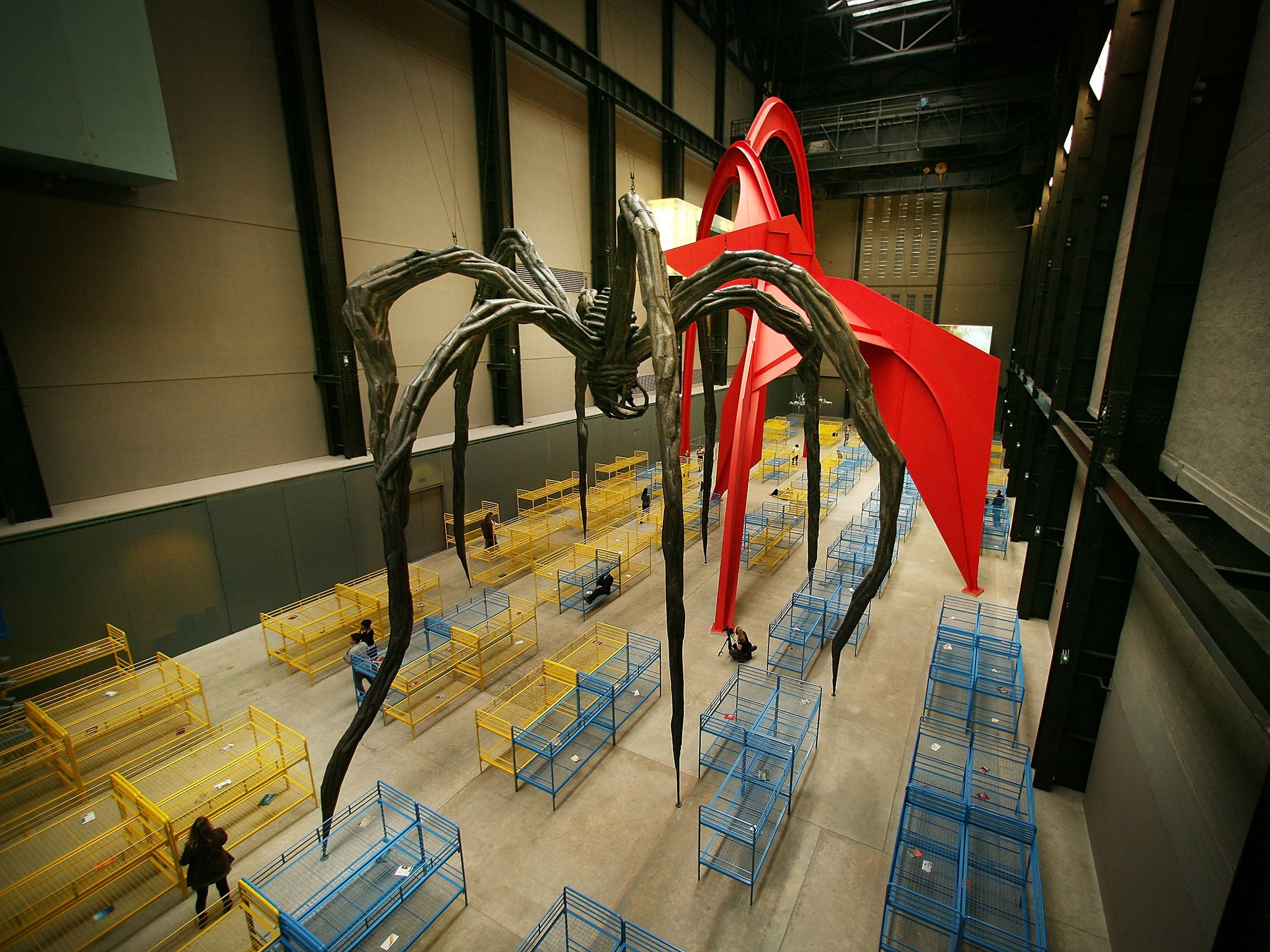Tate galleries forced to disclose the extent of controversial BP sponsorship deal
Tate has 35 days to disclose details of 25-year arrangement

The Tate has been ordered to reveal how much sponsorship it receives from oil giant BP after a landmark victory by environmental campaigners.
In an embarrassing ruling, the Information Tribunal found that Britain’s foremost group of galleries was “mistaken” and “somewhat fanciful” in its use of Freedom of Information Act to avoid revealing details of the lucrative deal. Tate galleries now has 35 days to disclose the extent of the sponsorship arrangement, which dates back 25 years.
The ruling is the latest chapter in a three-year legal battle over the Tate’s refusal to disclose the information, which has run alongside a campaign of protest over oil company sponsorship of art institutions. This has seen a wind turbine delivered to the Tate Modern and naked protest by an oil-covered protester at Tate Britain.
The tribunal accepted that arts sponsorship can “legitimately be understood” as maintaining BP’s “social license” and the Tate had gone through Freedom of Information requests “painstakingly”, but rejected the argument made by the gallery group that BP might be offended by disclosures. It also added that it was “wholly unpersuaded” by the claim that disclosing the sponsorship sum might led to “health and safety risks” from further protests.
“Tate’s sponsorship deal provides BP with a veneer of respectability when in reality it is trashing the climate, and involved with a series of environmental and human rights controversies all around the world,” said Anna Galkina, from campaign group Platform, which led the challenge. “BP is desperate to maintain its ‘social licence’ through arts sponsorship. Sponsorship secrecy makes BP seem more indispensable than it really is - and our culture must dispense with oil corporations.”
In a deal thought to be worth around £500,000, Tate renewed the BP sponsorship deal in 2011 for five years during the fallout from the catastrophic Deepwater Horizon spill in the Gulf of Mexico. At the time the body’s director Nicholas Serota said: “You don't abandon your friends because they have what we consider to be a temporary difficulty.”
Oil sponsorship of the arts has remained controversial though and earlier this year Archbishop Desmond Tutu said that “people of conscience need to break their ties with corporations financing the injustice of climate change”.
Rosa Curling, a solicitor from Leigh Day who has been working on the case, said: “The longstanding relationship between BP and the Tate is controversial. Only when the public are fully informed about how much money Tate actually receives from the company, can a properly informed debate take place about whether BP is an appropriate sponsor for the art gallery and its work.”
A spokesperson for the group said: “Tate is considering the decision of the first-tier tribunal in the BP sponsorship Freedom of Information case. The tribunal upheld many of Tate’s redactions and also required the release of some elements of the FOI request, including the release of pre-2007 historic figures for BP funding. The tribunal commended Tate for being thorough and open in its approach to the case.”
Subscribe to Independent Premium to bookmark this article
Want to bookmark your favourite articles and stories to read or reference later? Start your Independent Premium subscription today.

Join our commenting forum
Join thought-provoking conversations, follow other Independent readers and see their replies